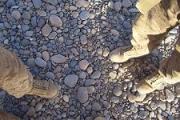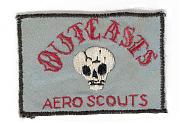The Tribesmen.
" A great many people have tried to describe Afghan character, and found it difficult, because it is a mass of contradictions. They are often recklessly brave, and nearly always brave, yet rather easily discouraged by failure. Very proud of their race and of their honour, yet often treacherous and faithless. Capable of extraordinary loyalty, yet capable of extreme vindictiveness against a friend on account of even an imaginary wrong. Observant and intelligent, yet credulous and superstitious. Paying little attention to their religion normally, they can easily be worked up to fanaticism. Inclined to be lazy, yet with immense reserves of energy, and power of endurance, and often at their best under the worst circumstances. Cheerful, sportsmanlike, and frugal, but excitable and lacking in self-control. A strange mixture. However you size them up, their virtues and vices are at least virile and those of men, and few Britishers are not attracted to them. Lastly, they are clever and plausible at arguing. But do remember that it is never, at any time, safe to rely on their faith to carry out a promise unless they know you have the power to enforce it. To Afghan mentality it is stupid to do something you don't want to, unless you must."
A quotation from "Letters of a once Punjab Frontier Force Officer'' by Colonel J. P. Villiers-Stuart, C.B., D.5.O., O.B.E.
And
The Principles of War:
" The Manual of Operations on the North-West Frontier of India" (referred to throughout the following pages as the " Manual ") Chapter I, Section i, states :
" While the Principles of War enunciated in Field Service Regulations, Vol. II, Sec. 2, remain unchanged, in campaigns in undeveloped and semi-civilized countries the armament, tactics and characteristics of the inhabitants and the nature of the theatre of operations may necessitate considerable modification in the methods of application of those principles."



 Reply With Quote
Reply With Quote













Bookmarks